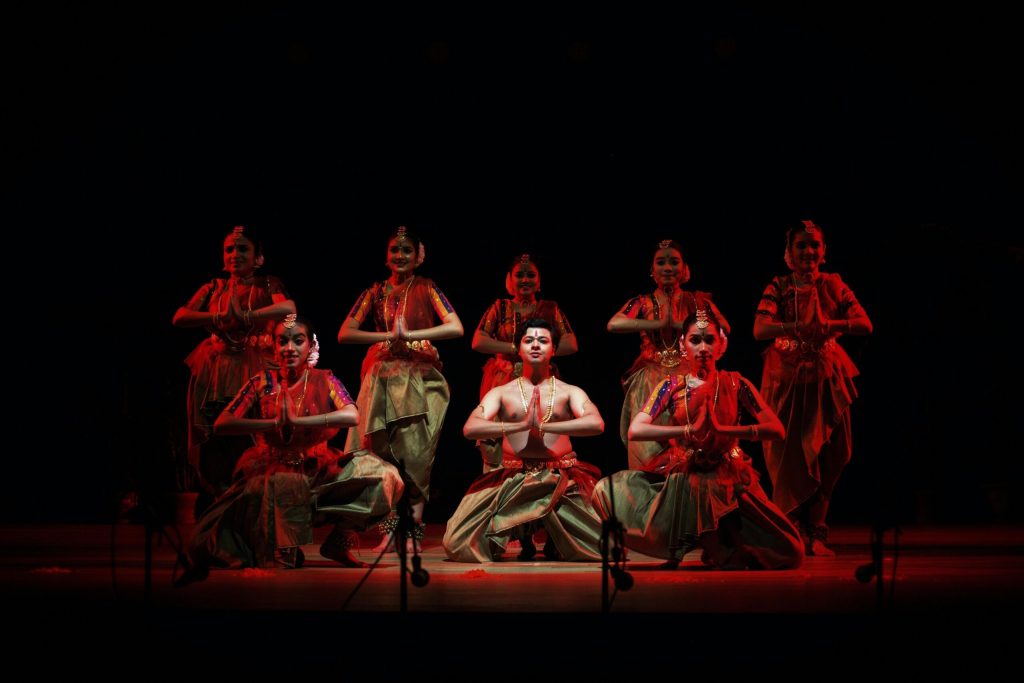Entertainment is more than just a way to pass the time. It’s an essential part of human life — a mirror reflecting culture, values, and aspirations. In a fast-paced, modern world where stress and responsibilities are constants, entertainment plays a critical role in helping people unwind, reconnect with their emotions, and gain new perspectives. From music and movies to social media and digital content, entertainment takes on many forms, adapting to societal shifts and technological innovations.
In this in-depth article, we explore the origins of entertainment, its different forms, its evolution in the digital age, and how content creators — including niche trends like pinay flex are reshaping how we engage with entertainment globally.
The Historical Roots of Entertainment
Entertainment has existed for as long as humanity itself. Ancient civilizations engaged in storytelling, theater, dance, and music as ways of celebrating culture, expressing emotions, and preserving knowledge. In Ancient Greece, theater was a central part of civic life, where plays were not only a source of enjoyment but also a platform for political and philosophical commentary. In Ancient China and India, traditional dance and musical performances marked both religious ceremonies and social events.
As societies evolved, so did entertainment. The invention of the printing press in the 15th century made literature widely accessible, while the 20th century introduced film, radio, and television — revolutionary forms of media that shaped generations.
Forms of Entertainment in the Modern Era
1. Movies and Television
Film and TV remain among the most popular and influential forms of entertainment. They tell stories that captivate, inspire, and challenge audiences. From classic Hollywood films to independent documentaries, movies and shows provide a broad spectrum of content that serves both escapist and educational purposes.
Streaming services like Netflix, Amazon Prime, and Disney+ have revolutionized access to film and TV content. Binge-watching entire seasons, once impossible, is now commonplace. These platforms have also provided a global stage for international content, allowing foreign shows and films to reach worldwide audiences.
2. Music
Music is a universal language that transcends borders. With genres ranging from pop and rock to classical and hip-hop, music caters to every taste and emotion. The rise of digital platforms like Spotify and Apple Music has given musicians the ability to reach audiences without traditional industry gatekeepers.
Concerts, festivals, and virtual performances have also evolved. Artists today can connect with their fans in real-time through social media, live streaming, and interactive platforms.
3. Gaming and eSports
Gaming has transformed from a niche pastime into a multi-billion-dollar industry. With immersive storylines, competitive multiplayer modes, and expansive virtual worlds, video games offer a highly engaging form of entertainment. The rise of eSports — competitive gaming tournaments — has further blurred the lines between traditional sports and gaming.
Platforms like Twitch and YouTube Gaming allow gamers to stream their gameplay, build fan communities, and even earn income. This has made it possible for gaming to be both a form of entertainment and a viable career.
4. Social Media and Digital Content
Social media platforms like TikTok, Instagram, and YouTube have given rise to a new generation of entertainers: influencers, vloggers, and content creators. These individuals craft content ranging from beauty tutorials and comedy skits to travel vlogs and political commentary.
One popular niche in this space is pinay flex, a trend where Filipina content creators showcase their skills, lifestyles, beauty, or achievements. The term reflects not only pride in heritage but also the creative spirit that drives digital culture.
The Rise of Interactive Entertainment
In contrast to traditional forms, interactive entertainment allows audiences to participate directly in the experience. Examples include:
- Virtual Reality (VR) and Augmented Reality (AR): These technologies immerse users in 3D environments, often used in gaming and experiential marketing.
- Live Streaming: Platforms like Twitch, YouTube Live, and Facebook Live enable real-time interaction between content creators and their audiences.
- Mobile Apps and Games: Apps like Duolingo (language learning gamified) or Netflix’s interactive shows (like Bandersnatch) offer dynamic user experiences.
This interactivity has made entertainment more personalized and emotionally engaging, allowing users to become part of the narrative.
Entertainment as a Tool for Education and Social Change
Entertainment doesn’t just amuse — it educates. Documentaries, historical dramas, satire, and even animated shows have been used to convey messages about science, history, mental health, and social justice. Edutainment (education + entertainment) is increasingly popular in classrooms and learning apps.
Social issues are also spotlighted through entertainment. For instance:
- Films like The Social Dilemma expose the ethical problems of tech companies.
- Shows like 13 Reasons Why address teenage mental health.
- Songs like Childish Gambino’s This is America provoke conversations on race and violence.
Thus, entertainment can be a powerful force for raising awareness and inspiring action.
The Cultural Impact of Localized Entertainment
While Hollywood remains a dominant force, local entertainment industries are making significant global impacts:
- K-pop and K-dramas have exploded in popularity worldwide.
- Nollywood (Nigeria’s film industry) is the second-largest in the world by output.
- Filipino content, including music, comedy, and vlogging — such as pinay flex trends — is drawing millions of views and fostering global communities of fans.
Localization allows audiences to see their own stories, faces, and languages represented on-screen, creating a deeper emotional connection and cultural pride.
The Business of Entertainment
Entertainment is not just art — it’s big business. The global entertainment and media market is expected to exceed $2.6 trillion by 2025. This includes:
- Box office revenues
- Subscription streaming services
- Music royalties
- eSports sponsorships
- Influencer marketing
- Merchandise and licensing
Content creators, production companies, and platforms must now compete not just for eyeballs, but for attention in a crowded marketplace. Branding, user experience, and content quality are more crucial than ever.
Challenges Facing the Entertainment Industry
Despite its massive growth, the entertainment industry faces several challenges:
1. Content Saturation
With so much content available, creators and platforms struggle to stand out. Consumers are bombarded with choices, leading to decision fatigue and reduced loyalty.
2. Piracy
Illegal streaming and downloads continue to hurt the revenue of content creators and production companies. Despite advancements in digital rights management, piracy remains a persistent issue.
3. Censorship and Content Regulation
Balancing creative freedom with political and social responsibility is a growing challenge. Governments and platforms often intervene to regulate what content is considered appropriate.
4. Mental Health of Creators
With the rise of digital content, creators face intense pressure to produce consistently while managing online criticism and public scrutiny. The demand for instant gratification can lead to burnout, anxiety, and depression.
The Democratization of Entertainment
One of the most exciting developments is how entertainment is being democratized. Anyone with a smartphone and internet connection can become a creator. This has lowered the barriers to entry and diversified the stories being told.
Take, for instance, the trend of pinay flex — an empowering movement among Filipino women who use social media to showcase their individuality, talent, and success. From dancing to entrepreneurial tips, these creators prove that you don’t need a big budget or Hollywood connections to entertain and inspire.
The democratization of entertainment encourages creativity, boosts cultural representation, and gives voice to marginalized communities.
The Role of Technology in Shaping Entertainment’s Future
As technology evolves, so will the ways we consume and create entertainment. Here’s a look into what’s next:
1. AI and Machine Learning
AI can personalize content recommendations, automate video editing, and even generate music or scripts. While it raises questions about originality, it also speeds up production and enhances user experience.
2. Blockchain and NFTs
Blockchain is revolutionizing content ownership and monetization. Artists can now mint their work as NFTs (non-fungible tokens) and sell it directly to fans, keeping more control over their intellectual property.
3. The Metaverse
The concept of a shared virtual universe, or metaverse, is gaining traction. Here, users can socialize, work, and play — all within immersive, gamified environments. Brands like Meta (Facebook), Roblox, and Epic Games are investing heavily in this future.
Why We Need Entertainment More Than Ever
In a world fraught with uncertainty, climate change, economic shifts, and social unrest, entertainment offers more than just a distraction — it offers hope.
It connects us to our roots, opens our minds to new ideas, and builds empathy through shared stories. Whether it’s a movie that makes you cry, a meme that makes you laugh, or a pinay flex video that inspires pride and joy, entertainment continues to play a pivotal role in human happiness and unity.
Final Thoughts: The Ever-Evolving Landscape of Entertainment
Entertainment is a living, breathing part of human culture. It adapts, transforms, and responds to the world around it. From ancient storytelling to immersive VR experiences, from global blockbusters to local content like pinay flex, entertainment proves to be one of the most powerful forces for connection, creativity, and change.
As technology advances and voices from around the world grow louder, the future of entertainment looks more diverse, inclusive, and interactive than ever before. The lines between audience and creator are blurring, and every smartphone user has the potential to be a star, a storyteller, or an agent of change.
In this golden age of digital media, entertainment is not just something we consume — it’s something we co-create, experience, and share.

